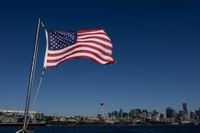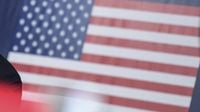The recent implementation of new import tariffs by the United States government has sent ripples through Indonesia's export market, prompting urgent calls for government intervention from industry leaders. As of April 5, 2025, a universal tariff of 10% and reciprocal tariffs that vary by country have been enacted, significantly impacting Indonesian products, particularly in the electrical equipment sector.
According to the Association of Electrical Equipment Manufacturers (APPI), the new 32% import duty imposed by President Donald Trump on Indonesian products threatens to undermine the nation's burgeoning export potential. APPI Chairman Yohanes P. Widjaja expressed his concerns, stating, "The 32% import tariff on electrical products by the US will negatively impact export potential." In 2024 alone, exports of electrical equipment from Indonesia to the US surged to $4.18 billion, up from $3.45 billion the previous year, indicating a growing market for these products.
Widjaja further elaborated on the ramifications of the tariff, noting that it could lead to an influx of finished products from countries affected by the US tariffs, which may flood the Indonesian market and disrupt local manufacturers. "Many countries impacted by the US import tariffs are flooding Indonesia with dumped products," he warned, highlighting the need for protective measures to safeguard local industries.
The situation is not isolated to the electrical equipment sector. In the Daerah Istimewa Yogyakarta (DIY) region, the head of the Industry and Trade Office, Yuna Pancawati, reported that the US has been a primary export destination for DIY products, accounting for 43.19% of total exports. Exports to the US rose from $212.33 million in 2023 to $236.25 million in 2024, underscoring the significance of this market.
Pancawati disclosed that various DIY products, including paper goods, woven handicrafts, leather items, garments, and furniture, are now at risk due to the increased tariffs. "Trump's policy will significantly impact DIY exports," she stated, emphasizing the need for alternative markets in Europe, Asia, and the United Arab Emirates to mitigate the adverse effects.
The new tariffs are part of a broader strategy by the US government, which aims to adjust trade balances with various countries. For Indonesia, the 32% tariff stands in stark contrast to lower rates for other ASEAN nations, such as Vietnam at 46%, Malaysia at 24%, and Cambodia at 49%. This discrepancy raises concerns about Indonesia's competitiveness in the global market.
Furthermore, the reciprocal tariffs, set to take effect on April 9, 2025, are calculated based on half the percentage of the trade surplus with the US. This means that Indonesian products will face additional pricing pressures, further diminishing their appeal in the American market.
Economic analysts predict that the imposition of these tariffs could lead to a slowdown in export production and a decline in economic growth for Indonesia in the upcoming quarters. Data from the Central Statistics Agency shows that while exports have generally increased from 2020 to 2024, the new tariffs could reverse this trend, causing significant instability.
In response to these developments, industry leaders are urging the Indonesian government to take decisive action. Widjaja called for a strategic response to the tariff war, advocating for tariff policies rather than non-tariff measures. He suggested that the Indonesian government consider implementing a 0% import tariff on US electrical manufacturing products to level the playing field.
As the situation evolves, the Indonesian government faces mounting pressure to safeguard its domestic industries while navigating the complexities of international trade. The stakes are high, as failure to act could jeopardize not only the electrical equipment sector but also a wide range of export products crucial to Indonesia's economy.
In summary, the recent US tariff policies have created a challenging landscape for Indonesian exporters, prompting urgent calls for government intervention and strategic planning to protect local industries. With the stakes so high, the coming weeks will be critical in determining the future of Indonesia's export market.






